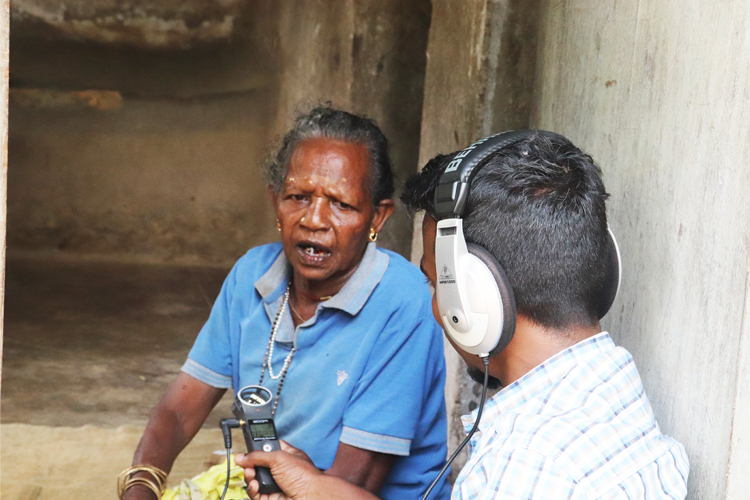About CeLK
The Centre for Endangered Languages of Kerala stands and works for Linguistic justice to all language communities in Kerala.

Vision
The Centre for Endangered languages of Kerala (CeLk) stands and work for linguistic
justice to indigenous and endangered language communities of Kerala.

Mission
To ensure the linguistic justice the centre function as a training, resource, research, documentation, revitalization and developmental centre for all indigenous and endangered languages in Kerala.

Action
Human resource training for language documentation and revitalization; advanced documentation of indigenous and endangered languages;revitalization and resource development of indigenous and endangered languages;advanced research, coordination and resource supply to all towards mission
The UGC-Centre for Endangered Languages of Kerala is an engagement venture of the Dept. of Linguistics, University of Kerala with the support of University Grant Commission.
CONTACT US NOW
The Centre for Endangered Languages of Kerala
The UGC-Centre for Endangered Languages of Kerala (CeLK) was established in 2017. University Grant Commission awarded financial support of Rs one crore ninety two lakhs to establish this Centre at the Dept. of Linguistics University of Kerala. Department of Linguistics, University of Kerala established in 1963. Ever since 1963s the Dept. of Linguistics has been consistently training students, documenting and delivering research output in the area of endangered tribal languages of Kerala. Therefore, the Department received national and global attention as an advanced centre in the area of field linguistics and documentation of tribal languages. The linguistic resource developed for the five decades makes the Department as the first and last centre of resource of tribal languages in Kerala.The recent study of the dept. observed that “linguistic diversity around the world is a global common good. Out of 6,909 languages around the world, 95% of the languages have less than 1 million native speakers, with an average 6000 speakers per language. It is estimated that out of this number 90% of the world’s languages would be endangered by 2100. Therefore, language endangerment is a global concern. Language documentation and revitalization is proposed as the imperative to save the endangered languages from the extinction. US National Endowment for the Humanities, European Science Foundation Better Analyses Based on Endangered Languages programme, The World Oral Literature Project based at Cambridge University and SPPEL of Central Institute of Indian Languages, UNESCO and Govt. of India are supporting the language documentation initiatives. Majority of the Indian languages have been undergoing different degrees of endangerment. Governmental and nongovernmental organizations in India are doing number efforts to document and revitalizes endangered languages in India. However, the number of languages are undergoing different degrees of endangerment in Kerala are not scientifically measured”.
- To undertake inter departmental and inter disciplinary research related to indigenous and endangered languages.
- To undertake fieldwork, research, analysis, archiving and documentation of smaller indigenous/endangered languages
- To produce and publish monographs, grammars, grammatical sketches, dictionaries and lexicon, ethno-linguistic and theoretical descriptions, collection of oral and folk literature and scholarly books on endangered languages.
- To produce language and dialect atlases with special reference to minority and endangered languages.
- To organize workshops and seminars aimed towards promoting advanced research related to endangered languages.
- To train teachers and students from other departments/centers in Field Linguistics, Lexicography and in techniques for data management and documentation.
- To promote and foster various domains of endangered languages so as to ensure minority/endangered language communities in maintaining and preserving language vitality, including the development of orthographical resources like scripts, book of letters, and primers.
- To digitize data collected in the course of the research in the Centre and make it available to public by internet.
